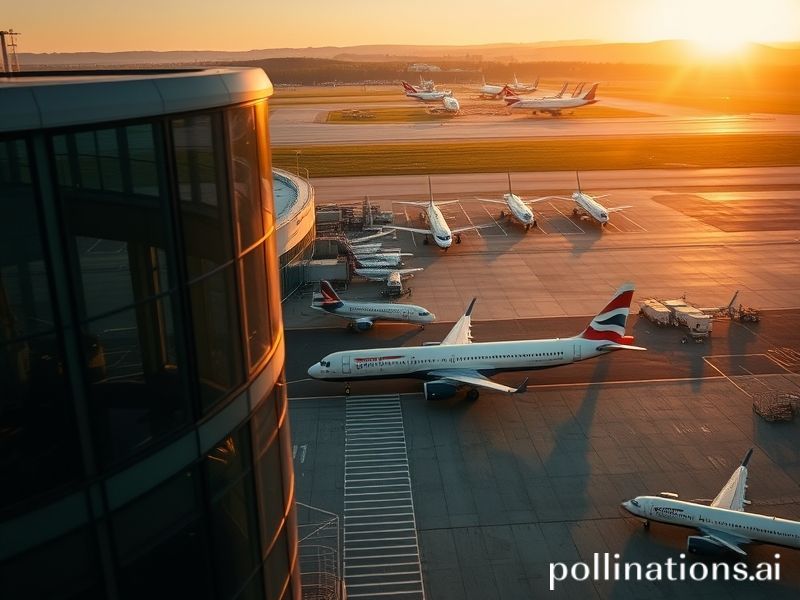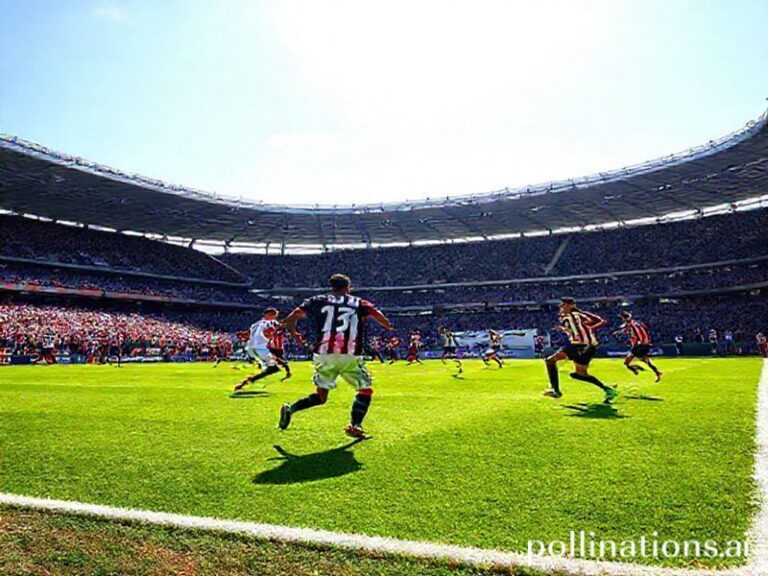Gatwick Airport: The World’s Most Honest Lesson in Global Chaos and Communal Delusion
Gatwick: The Last Honest Place on Earth (Until the Wi-Fi Drops)
There are two kinds of international travelers: those who have slept on a Gatwick bench at 03:47, and liars. Tucked improbably close to London yet closer still to existential dread, Gatwick Airport—code LGW, motto “Please Continue to the Next Available Queue”—has spent seventy years perfecting the art of being almost important. It’s the airport equivalent of the friend who brings supermarket prosecco to your wedding: technically present, charmingly apologetic, and quietly running a side hustle selling your gift list on eBay.
Globally, Gatwick is the airport other airports practice on. Dubai, Singapore, Doha—those gleaming temples of duty-free excess—look at Gatwick’s low ceilings and pre-2008 carpet tiles and experience the warm reassurance that greatness is relative. When Changi opened its butterfly garden, Gatwick responded by finally fixing the hand dryer in the South Terminal men’s room. Balance restored.
Yet Gatwick matters precisely because it refuses to dazzle. It is the world’s most honest crash course in post-war European optimism curdling into twenty-first-century austerity. Where else can you watch a Chinese tech billionaire, a Ghanaian gospel choir, and a hung-over stag party from Leeds share the same Pret queue, united only by the communal discovery that “breakfast” now costs £14.50 and tastes like regret? The terminal is a petri dish for late capitalism: half the shops sell you overpriced luggage to replace the luggage they just lost.
Internationally, Gatwick is the pressure valve for London’s delusions of grandeur. Heathrow is where Britain pretends it still runs an empire; Gatwick is where Britain admits it’s basically a mid-sized regional hub with excellent rail links to Brighton. When the UK government floated plans to expand Gatwick instead of building a third runway at Heathrow, foreign correspondents snorted so loudly the coffee in LAX turned cold. The subtext was unmistakable: we’d rather queue twice than commit once.
But queues, dear reader, are the new lingua franca. From JFK’s TSA labyrinth to Mumbai’s immigration cattle grids, the global citizen’s most common shared experience is standing still while staring at a screen that says “Please Wait.” Gatwick simply removed the pretence. Its border hall is decorated with posters telling you how long you will wait, updated in real time like a stock ticker for human misery. Somewhere in Davos, a consultant is pitching this as “radical transparency.”
The airport’s real export, though, is stoicism. Cancelled flight to Malaga? Here’s a £6 voucher for tap water. Snow in April? That’ll be a complimentary yoga mat to sleep on beside the smoking cage. Somewhere between the World Duty Free and the gate that moved while you blinked, Gatwick teaches the planet’s most transferable life skill: shrugging in seventeen languages.
And still, planes leave. Every hour, an easyJet Airbus—liveried in optimistic orange—leaps off the single runway toward 200 destinations, carrying Hinge dates, Bulgarian carers, and hedge-fund escapees who all paid different prices for the same 28 inches of legroom. Each departure is a small, miraculous vote of confidence in a system that visibly doesn’t work yet somehow keeps working.
So laugh if you must at the leaking roof, the £3.80 bottles of water, the security officer who confiscated your peanut butter because it was “technically a liquid.” Gatwick is the rare place that tells the truth: the world is held together by duct tape, caffeine, and collective delusion. And somehow, that’s comforting. After all, if humanity can still get airborne from an overgrown provincial airstrip with ambitions above its station, maybe—just maybe—we’ll figure out the rest.
Until the Wi-Fi drops again. Then it’s every passenger for themselves.







